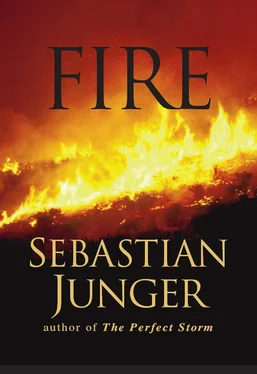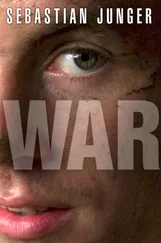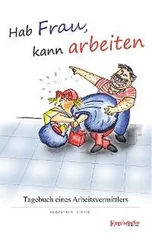“From a war crimes standpoint, we document the number of individuals, determine the sex ratio, and then determine the ratio of adults to children,” says Rodriguez. “From there, we can move on to identifying the dead individually. We can also find evidence of blunt force trauma, stab wounds, gunshot wounds, malnutrition, and torture…. We deal with death on a daily basis. We’re scientists of death.”
The FBI convoy rolled out of Studenica in midafternoon. The family had reconvened in front of the house and was going through a pile of clothes that had been pulled up from the well along with the bodies. There were ski parkas, blankets, sweaters, a fake-fur coat. One man spotted the fake fur, knelt on it, and started sobbing. Xhevat, the grandson who had just returned from Germany, stood around a little uncomfortably, unsure what to do.
“Tell me about him,” I said to Xhevat, pointing to the grave where the old man was now reburied.
“He was a farmer. He saw World War One and World War Two,” Xhevat said. “He was a soldier for the Germans in World War Two. He always lived right here; he never considered leaving. Everybody fled, but he didn’t. ‘You are on my land…. No one will come and throw us out of here,’ he would say.”
“How long are you staying?” I asked him.
“Oh,” Xhevat said, glancing at the rotting clothes in his front yard. “I go back to Germany on Friday.”
In February 1994 German police took into custody a Bosnian Serb named Dusko Tadić, who had been hiding in his brother’s apartment in Munich. Tadić had been recognized by Bosnian Muslims who had survived the infamous Serb death camp of Omarska, near the city of Prijedor. Tadić wasn’t officially in the Bosnian Serb Army—he was a local café owner and karate teacher—but he would show up in the evenings to direct personally the torture of chosen prisoners. An ICTY indictment one year later accused him of rape, torture, thirteen murders, and—in his most infamous act—forcing a prisoner to bite the testicle off another, who subsequently died. Two years later, after a trial that lasted from May to November 1996, he was convicted of violating the laws and customs of war and of crimes against humanity and was sentenced to twenty years in prison.
The Tadić case was the first successful prosecution of a war crime by the ICTY. It has indicted ninety people for crimes committed in the former Yugoslavia and has an unknown number of secret indictments. Thirty of the accused are now in custody, including ten Bosnian Croats who surrendered in 1997 and three Bosnian Serbs who surrendered in 1998. One was killed resisting arrest. On July 25, 1995, South African Judge Richard Goldstone, acting as the tribunal’s chief prosecutor, indicted Bosnian Serb President Radovan Karadžić and his chief of staff, General Ratko Mladić, with genocide, war crimes, and crimes against humanity. Four years later, neither one has been caught; Mladić is said to spend his days on a Bosnian Serb military base, tending beehives and a herd of goats. Each goat has been named after a Western leader or UN commander.
Considering the time and effort that it takes to indict someone for war crimes, the question of whether the investigations serve a purpose—in the absence of arrests—is a hard one to avoid. Judge Goldstone, who now heads an independent commission on NATO’s use of force in Kosovo, is adamant that they do. “To turn people for the rest of their lives into international pariahs is not something that any rational person would like,” he says. “Karadžić was no longer able to continue in office and had to disappear from the international scene…. The quality of their life is diminished considerably…. One is looking over one’s shoulder every day of one’s life.”
Slobodan Milošević, as president of Yugoslavia, is not looking over his shoulder in quite the same way, but his is a precarious existence nonetheless. There is widespread discontent in the army, the country’s infrastructure and economy are in ruins, and Montenegro wants to abolish the Yugoslav Federation. Because of the international arrest warrants, Milošević cannot flee to another country, and the United States is withholding economic aid to Serbia until he has been removed from power. “It is in the interest of the peoples of Serbia that [he] be transferred to The Hague,” maintains David Scheffer, United States ambassador-at-large for war crimes issues. “It will remain a very difficult proposition to bring Serbia into the international community and into, frankly, the New Europe if Serbia remains a de facto sanctuary for indicted war criminals…. We think the odds are with us.”
Because of the turmoil in Yugoslavia, there is a good chance that Milošević will one day stand trial. (Indeed, he has reportedly started making inquiries about hiring an English lawyer.) He has already been charged with crimes against humanity and violations of the laws and customs of war and may be charged with genocide as well, the most serious breach of humanitarian law. To convict him, the ICTY would have to show that he intended to destroy, “in whole or in part,” the Albanian population of Kosovo. The fact that his forces generally spared women and children does not disqualify him from charges of genocide; theoretically, even one murder could be considered genocide if there was intent to harm the rest of the group. By that standard, the policies of the Milošević government easily qualify.
The atrocities in Kosovo are so well documented that Milošević will probably not bother to challenge them in court; instead, he may try to claim that he was unaware they were happening. He may already have had an eye toward that kind of defense when he encouraged paramilitary and militia forces to carry out many of the actual massacres in Kosovo. NATO has been eavesdropping on Serbian forces in the field since the beginning of the air war, though, and that will make an ignorance defense difficult. “To prove chain of command, we are relying to a great extent on intelligence agencies in the Western countries,” says Landale, spokesman for the ICTY. “They are obliged to give it to us. We will try to show knowledge of crimes and failure to prevent them or to punish them.”
When one hears accounts of the massacres in Kosovo, one is struck by both their terrible efficiency and their even more terrible savagery. Many of those responsible were hastily deputized militiamen who, to judge by the sheer creativity they showed in killing people, must have been quite intoxicated by their sudden power. They shot people one by one, and they mowed them down in groups; they burned them alive, and they cut their throats; they tortured them, and they just walked up and shot them in the backs of the heads. They briefly wielded absolute power in their brutal little lives and must have never stopped to think that they might one day be held accountable for it.
THE TERROR OF SIERRA LEONE
2000
The sin of Judah is written with a pen of iron, and with the point of a diamond.
—JEREMIAH 17:1
Josephus, the son of an up-country diamond trader, checked over his shoulder and pulled a pack of 555-brand cigarettes out of his pocket. He opened the top and shook two diamonds into his palm, a twenty-five-carat coffee-colored industrial and a three-carat white gem. They looked like rock candy. We were at the Cape Sierra Hotel, one of the few safe places in Freetown, and Josephus wanted to do business.
“How do I know they’re real?” I asked.
Josephus picked up a beer glass and dragged a long scratch down the side with the white. Very few things are hard enough to scratch glass, and a diamond is one of them. Josephus said that his father was a local chief in Kono and had large mining concessions there. Kono, a district in the northeastern corner of the country, is the richest diamond-producing area in Sierra Leone and—not coincidentally—is still under rebel control. Every two weeks, Josephus said, he flew to Freetown to sell diamonds and returned with rice and palm oil for the miners. The miners were paid a dollar a day, and if they found any stones, they got a commission.
Читать дальше












